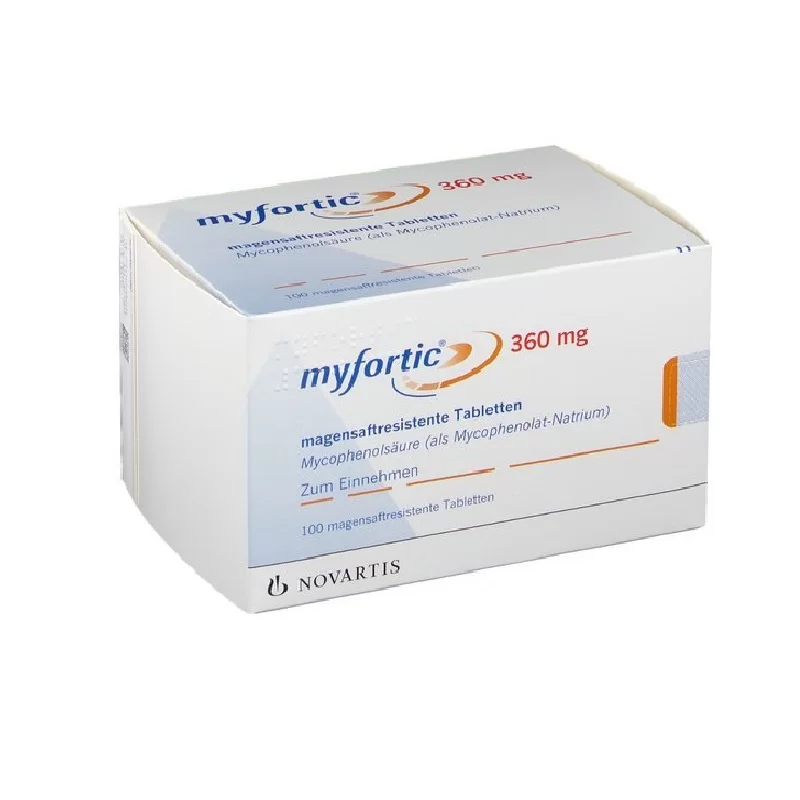MYCOPHENOLATE 360 MG: A Comprehensive Guide
Welcome to our in-depth guide on Mycophenolate 360 mg! In this article, we will delve into every aspect of this medication, its uses, benefits, potential side effects, and much more. As your trusted source of information, we aim to provide you with the most comprehensive details that will not only educate but also empower you in making well-informed decisions regarding your health.
Introduction to Mycophenolate 360 mg
Mycophenolate 360 mg is a powerful immunosuppressive medication commonly prescribed in the treatment of various medical conditions. It belongs to the class of drugs known as mycophenolic acid derivatives and is often used to prevent the rejection of organ transplants, such as kidney, liver, and heart transplants.
How Does Mycophenolate 360 mg Work?
Mycophenolate 360 mg works by targeting and inhibiting an enzyme called inosine monophosphate dehydrogenase (IMPDH). This enzyme is crucial for the production of guanosine nucleotides, which play a significant role in the proliferation of immune cells. By suppressing this process, Mycophenolate reduces the activity of T and B lymphocytes, thus dampening the immune response and preventing organ rejection.
Medical Conditions Treated with Mycophenolate 360 mg
Organ Transplant Rejection Prevention
One of the primary uses of Mycophenolate 360 mg is in preventing organ rejection following transplantation. When a patient undergoes a life-saving organ transplant, the body's immune system may recognize the new organ as foreign and attempt to attack it. Mycophenolate's immunosuppressive properties help mitigate this response, ensuring the transplanted organ's long-term survival.
Autoimmune Diseases
Mycophenolate 360 mg is also prescribed to manage certain autoimmune diseases, such as systemic lupus erythematosus (SLE), lupus nephritis, and pemphigus vulgaris. These conditions occur when the immune system mistakenly attacks healthy cells and tissues, leading to chronic inflammation and tissue damage. By regulating the immune response, Mycophenolate can help alleviate the symptoms and slow down the progression of these autoimmune disorders.
Inflammatory Bowel Disease (IBD)
In some cases of inflammatory bowel disease, including Crohn's disease and ulcerative colitis, Mycophenolate 360 mg may be used as an immunosuppressive agent. It can help reduce inflammation in the gastrointestinal tract and provide relief to individuals suffering from these chronic conditions.
Dosage and Administration
The dosage of Mycophenolate 360 mg may vary depending on the specific medical condition being treated, the patient's age, weight, and overall health. It is typically taken orally in the form of tablets or capsules, and it's crucial to follow the prescribing physician's instructions carefully.
Potential Side Effects
While Mycophenolate 360 mg can be highly effective in managing various medical conditions, like any medication, it may come with potential side effects. Common side effects include nausea, vomiting, diarrhea, headaches, and dizziness. Most of these effects are mild and transient, but if they persist or become bothersome, it is essential to consult a healthcare professional.
In some cases, Mycophenolate may lead to more severe side effects, such as infections, anemia, leukopenia, and thrombocytopenia. Patients taking this medication should be monitored regularly by their healthcare providers to ensure early detection and management of any adverse reactions.
Precautions and Considerations
Before starting Mycophenolate 360 mg, it is crucial for patients to discuss their medical history and any ongoing medications with their doctor. Certain medical conditions and drugs may interact with Mycophenolate, affecting its efficacy or increasing the risk of side effects.
Pregnant or breastfeeding individuals should exercise caution while using this medication, as it may pose risks to the unborn child or nursing baby. Your doctor will weigh the potential benefits against the risks and make an informed decision about its use during pregnancy or lactation.
Interactions with Other Medications
Mycophenolate 360 mg can interact with other medications, including over-the-counter drugs, herbal supplements, and prescription medications. Interactions can alter the effectiveness of the drugs involved or lead to unexpected side effects. To avoid potential complications, it is crucial to inform your healthcare provider about all the medications and supplements you are currently taking.
Conclusion
In conclusion, Mycophenolate 360 mg is a valuable medication used in the prevention of organ transplant rejection and the management of various autoimmune and inflammatory conditions. By understanding its mechanism of action, uses, potential side effects, and precautions, patients can work together with their healthcare providers to optimize treatment outcomes.
Always remember to follow your doctor's guidance, take the prescribed dosage as directed, and report any unusual side effects promptly. With the right information and responsible medication management, you can confidently navigate your health journey with Mycophenolate 360 mg.


